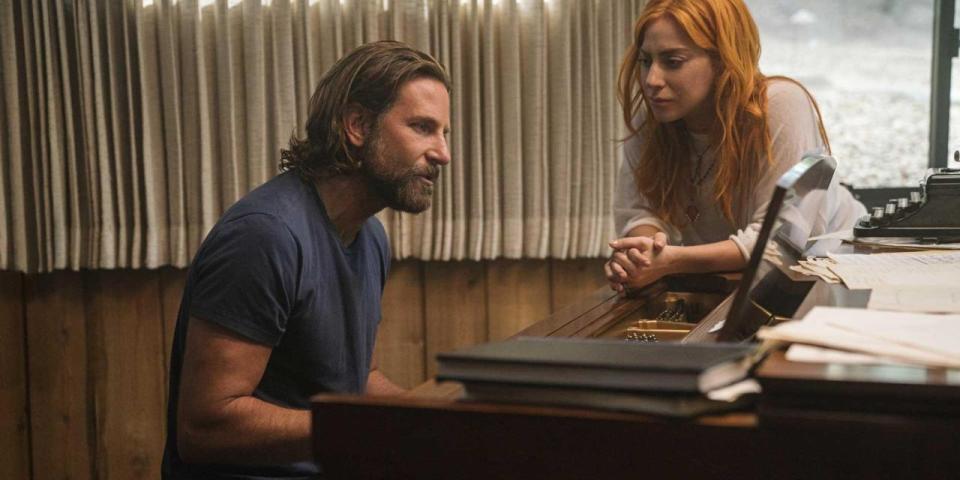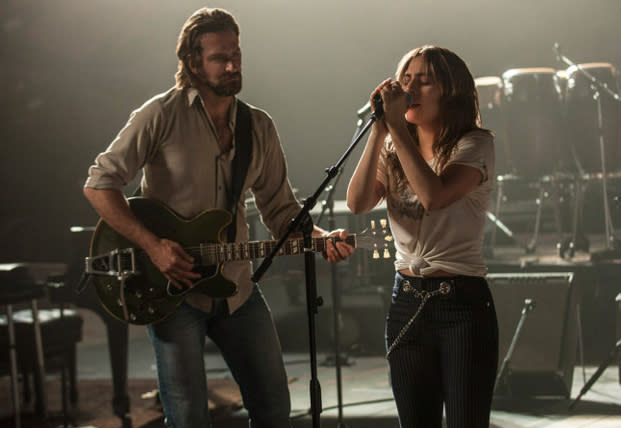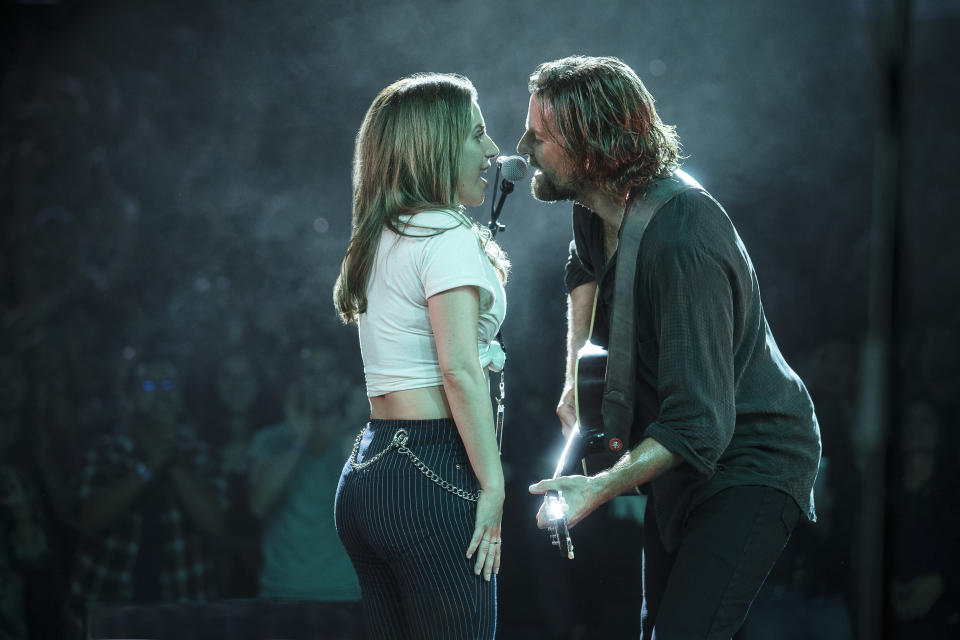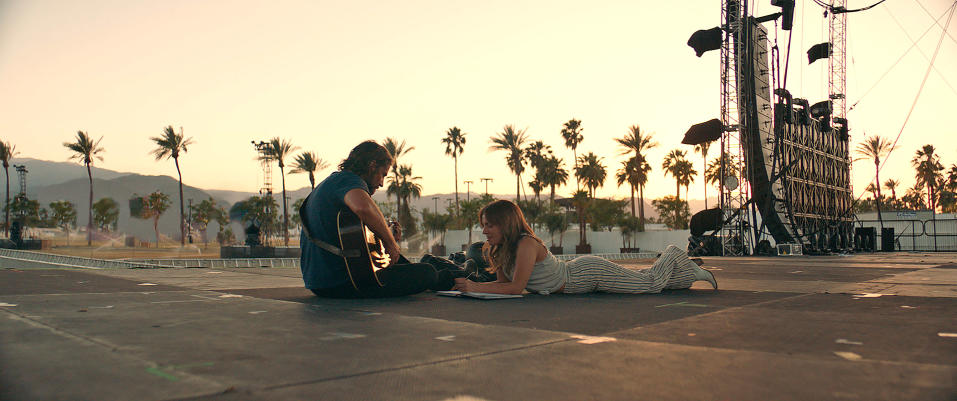Screenwriter Eric Roth Discusses ‘Dune,’ ‘Killers Of The Flower Moon,’ Writing For Kurosawa & Bringing New Life To ‘A Star Is Born’

When Eric Roth was approached to work on A Star Is Born, his response wasn’t one of excitement, but of fear. “This had been done a lot of times, and I didn’t know whether I could crack the code to make it special and modern,” the screenwriter says. “The fear was trying to do it again, [and] whether anybody was really interested anymore.”
The fourth iteration of a classic screen story, pairing a starlet on the rise with a more established hand for a transcendent, challenging romance, the film started out in the hands of Clint Eastwood, who had his own take in mind. Eventually, Eastwood left the project, though his co-writer Will Fetters remained behind, to help Bradley Cooper script his feature debut. Then came Roth—an Oscar winner behind Benjamin Button and Forrest Gump—who read the pair’s draft and was direct in expressing his thoughts.
Related stories
Cinematographers Guild Joins Protest Over Move To Trim Oscar Telecast
Oscars Last Call: 'Brokeback Mountain' Author Annie Proulx On Seductive 'Cold War'
Admittedly, the writing process wasn’t all rainbows and love songs. Famous for his “old school” approach to his craft, Roth isn’t known for “being very quick.” Even with today’s more sophisticated screenwriting softwares, Roth prefers to use Movie Master, a DOS-based program that no longer exists, is incompatible with email, and “only has so many pages of memory”—a choice that is “half superstition and half comfort.” A self-proclaimed “curmudgeon,” the veteran scribe is hesitant to visit set (though he wrote through the course of the A Star Is Born shoot), and is someone who sticks to his guns, even with major stars like Cooper. “We had our moments, to be honest; we were both a little prickly about criticism, and this and that,” Roth admitted. “But that’s just part of the process.”

Uncertain about the viability of Cooper’s remake, Roth came on board at a moment in time when he needed to believe in himself. “I think it was not that I had a question as to whether I was relevant per se, but it certainly made me feel more relevant,” he shares, of the film’s success. At age 73, Roth watched A Star Is Born become a phenomenon, grossing over $420 million worldwide, which would suggest that he definitely “could still write things that appeal to modern and younger audiences.”
If there was any doubt about that, it’s certainly extinguished—just look at what the writer has coming up next. Explaining what it took to make A Star Is Born sing, Roth also offers comments on his scripting of Denis Villeneuve’s Dune, and Martin Scorsese’s Killers of the Flower Moon.
On A Star Is Born, what did your first meetings with Bradley Cooper entail?
Bradley had come to me and said, “This is the material we have, what do you think?” And I said, “Some was for me, some was not. I’d like to see if we could rework it in some way.” I needed a couple weeks to re-outline certain things, and some time to write—whatever it would take—and they were under some time pressure from Warner Bros. to write the script. It turned out to be eight weeks to write it, which is way shorter than anything I’ve ever done, and then a number of weeks while they were filming, and Bradley was there every step of the way. We would share ideas; I would give him scenes. I don’t sleep much, and I guess he doesn’t either, so in the middle of the night, we’d text each other various incarnations of stuff, and eventually it felt pretty good.

Had you seen all the prior iterations of A Star Is Born before signing on?
I don’t remember if I’d seen the very first one until I agreed to do this, but I had seen the Judy Garland one, and the Kris Kristofferson.
What did you think of them?
I think the Judy Garland version, in particular, was a fairly meaningful piece of writing. Moss Hart was involved; really great writers were involved in all of them. I thought Judy Garland was pretty extraordinary, and even though the tale is many times told, it resonated with me.
In Cooper’s version, what did you lock into? What was it that assuaged your fears?
I locked in on the love story. That gave me comfort because I think I’ve done a number of love stories, and I feel confident about the interrelationships with certain characters. Also, it had the built-in tragic ending, which is obviously a good thing for a love story. I don’t think you can think of too many love stories that have generally happy endings. It happens occasionally, but I think one of the foundations of a really great love story is that people just can’t be together, whether it’s by race, or economics, or class, or anything. There’s always some kind of impediment, all the way back from Romeo and Juliet.

What kind of notes did you give on the first draft you read? What did you need to see in the script to feel confident about the film?
I don’t know. It’s like anybody who’s asked to do new work. I guess I have enough self-confidence to believe I have some sort of sight onto what I can do. I don’t know if I could be so specific as to what I didn’t like; it was more a feeling that it didn’t accomplish what I thought it should. I guess at that juncture, Bradley felt it needed to go another level, and I think Warner Bros. might have, too. But it was the normal things that people work on. When I’ve been rewritten, they’ve tried to make the characters more believable or more interesting; they try to tell a story in a way that’s probably more concise. I think it’s always the same tasks. The difference would be if the third act wasn’t working or something like that, but this was a little more generic for me. Not that the script was. But it just felt like if I was going to do this, they may as well take whatever value I have, and make it whatever best I could do.
The circumstances behind this studio pic were unusual, as the directorial debut of an Oscar-nominated actor with a very specific vision in mind, even when it came to casting. Did you find yourself writing toward cast members like Cooper and Lady Gaga, in terms of their strengths or unique qualities?
Yes and no. I don’t tend to do that too much. I guess you could say I did it for Forrest Gump. But a long time ago, I actually learned from Michael Cimino that you have to have many, many different voices. And psychologically, the characters have to be accurate. So, we thought long and hard about this idea of having [Cooper’s Jackson Maine] having a very older brother, and what that would mean to him, and what the conflicts were [between them]. [Gaga] asked me what character I could think of that would help her play this, because it wasn’t quite in her DNA to be an actress yet, and I told her to look at Cher in Moonstruck. You had a vulnerable quality in that character. Very streetwise and sure of herself in certain areas, and a little bit lost in others.

A character’s onscreen introduction often tells us a lot about them. While we first see Jackson Maine on stage, performing, we first take in Ally from outside her bathroom stall, as she breaks up with her lawyer boyfriend over the phone. What were you trying to set up in that moment?
We wanted to have a slight surprise of her coming out; I think we wanted to, in good exposition, clear her out to be available. And then, more importantly, this woman was working with the catering group, and wasn’t on firm footing [as] a singer. Then, Bradley had a great idea. One of the things that I think is more interesting is that we decided to do “Somewhere Over the Rainbow,” her singing it as she came out. But I think Bradley was much more creative than me, or at least more artistic, and said, “Let’s just do the prelude,” which was quite beautiful and very smart.
The idea of having your principal characters meet at a drag bar is original to Cooper’s version of the story. What informed that choice?
I felt like, “Let’s do something that’s iconic in the sense of Lady Gaga.” That’s what her persona is, so I liked the idea of doing the iconography of that. It’s a little odd for only one woman to work at a gay bar, but I liked that it jibed with her public persona. I thought the choice of the song, “La Vie en rose,”—Bradley might have made that—was very good, and I liked the whole thing.
Then we got into the more improvisational quality of the film, which is very powerful, and [while] a lot of it’s written, we decided early on to do it as conversational as possible. I think that was at the impetus of Bradley, who really felt, “Let’s make this as first person, in all respects.” So, you felt like you were on stage with the characters, and felt also the intimacy of the relationship, and felt there was a reality to it.

Obviously, A Star is Born is set in the world of music, hinging on its set of original songs. At what point did those songs enter the picture, converging with the script you were writing? And how did you approach writing the film, in the midst of big gaps, which could only be filled in by other artists?
I don’t know exactly when [Gaga] wrote “Shallow”, for instance, but they did dovetail into what we were trying to do. I knew we needed, for instance, pop diva songs at some point; I didn’t know what they were going to be, but I knew that’s what it required. I knew we had to have a love song, one that [Jackson] supposedly wrote. We knew all those things, so I think that helped. Probably both sides helped the other.
I was knowledgeable about most of the songs, but not all of them, and the interesting thing was that we originally wrote a lot of covers for them to sing. Not that the movie wasn’t going to have many original songs. But I had a game I kind of invented, where they each sang a lyric of a song, and that led to them singing this, but they’re all covers. I thought it was quite romantic. Bradley liked the romance of it, but he eventually felt, “Let’s not do any covers,” and I think that’s another reason it feels so fresh and original.
Do you recall which artists you were thinking about for covers Cooper and Gaga could do?
I don’t think there was anybody specific. They originally were going to be in a car on their way to Arizona, rather than the motorcycle, and while they were killing time, like anybody does, I invented a little game, where they sing a lyric of a song. It could be Elton John, let’s say, and you end up with a familiar lyric. Whatever letter ends up being in the last word of the lyric, you’d take that letter, and if it’s an L, you might sing “Let It Be” next. So, we played with that. It’s not important, but at one point I had him singing that John Prine song, “Hello In There.” It was just classic and touching, and it was funny because he didn’t really play the game. He just decided to sing the song. It was fun, but I don’t think it had the effect that he wanted to have with all this original music.

A Star is Born fearlessly takes its characters through some ugly, dark, difficult and embarrassing moments. In terms of tone, was the goal just to be as raw and authentic as possible?
It was exactly that. We tried as best we could, and I think we succeeded. I was so pleased to see that the critics felt so, much less an audience. We tried not to stay away from entertainment, but not make the movie just pure entertainment, so it had some actual validity and honesty, and spoke to a few things that might resonate with people.
You mentioned writing through the duration of Cooper’s shoot. What did that entail?
It really depended on where we were. He would anticipate things and say, “Thursday, we’re going to be doing X, Y, or Z. Can we make this bigger?” It was really trying to improve everything. I don’t think there were any big changes, even though he changed the movie constantly, in a great way. It was very organic. If he felt we needed something, I would try to give it to him. Then, he would work with it, and we’d come back and figure, “This is a better way maybe to do it.”
This project wasn’t your first with an actor-director; you wrote The Horse Whisperer for Robert Redford in the ‘90s. What did you see in Cooper, in comparison to Redford, or other esteemed directors with which you’ve worked?
I guess I would say Bradley had a more free-form approach; he was very spontaneous with things. That doesn’t mean the other directors aren’t spontaneous. They want your imagination to be unexpected, but the others I felt—and I mean this in a nice way—[worked] more classically. I remember Director X and Director Y saying to me, when I started rewriting my own work, “You will be done writing by August.” But Bradley never quite said that. He wanted to have the opportunity to always make it better—like any director does, by the way—in the editing, so that it’s always a constant writing process. He had me see the film a few times and said, “What do you think?” I told him what I thought early on, and a few things he agreed with, and a few things he didn’t. Which is fine.

But [in regard] to your question, I would say all of [the directors] that I can think of were experienced hands. Zemeckis had done a number of movies, and was very successful and very competent and creative and a wonderful man. Michael Mann, great assurance. My beloved David Fincher, very self-assured and confident, and knew what he wanted to do. I’d say the same of course about Steven Spielberg, and very few people know this, but I even wrote for Kuroswa. Rhapsody in August was one of his last movies; Richard Gere was in it and played an American, and he wanted me to try to make it sound and feel as American and real as possible. That was probably one of the highlights of my life.
Running down the directors and trying to think about this opportunity I had, Bradley being a new, first-time director, didn’t have that. I think he relied on me in an odd way for some experience, knowing how these ropes worked, and then he was brave enough to just launch out and try things. So, it’s just different; in the end, you come to the same place, it’s just how you get there. Fortunately, he was a man of great quality and good taste, and artistic, so I think you end up the same way [as] with people I’ve been lucky enough to work with.
What about your work on this film has given you the greatest sense of achievement?
I think there’s a certain sense of universality about things; as they say, a great love story is a great love story, and I think it’s a pretty great love story. On the other hand, I’ve been accused of being too sentimental; Jimmy Woods, the actor, called me “Sappy Dog Heart,” and I don’t know if that’s true. I think probably if I have a strength, it’s that things feel human, which is nice. Elvis Mitchell pointed this out to me, and I think there’s a truth to it, that all my screenplays, I guess, are me dealing with the concept of loneliness in some way.
You have your hand in two of the most anticipated upcoming films. What can you tell us about Dune, and Martin Scorsese’s Killers of the Flower Moon?
Dune was a real challenge; Denis Villeneuve brought me on. I had done some little bits of stuff for him for Arrival, and we really love each other personally. I turned in a really long draft, which I think was pretty cumbersome to make within the budget. I think the ideas were great, and I think they used most of them, but that needed a good look. I think Denis has…brought in another writer to trim it out, and get back to the book in some respects, so I think it’s exciting. The approach to it’s pretty wonderful, and it could be a beautiful movie.
Then, Killers of the Flower Moon, I think, is one of the great stories that one could tell. I think any good writer would do this justice; it’s such a powerful piece, and it’ll be Marty Scorsese basically doing a Western.
What’s the status on Killers?
Things don’t happen always as you want, but I would say it would be late next summer, he’d start [shooting], early fall. I know how much [Scorsese] loves it, and I’m just sending literally this morning the last of this iteration of the script. Then, I’m sure we’ll start rewriting again.
Get more from Deadline.com: Follow us on Twitter, Facebook, Newsletter

